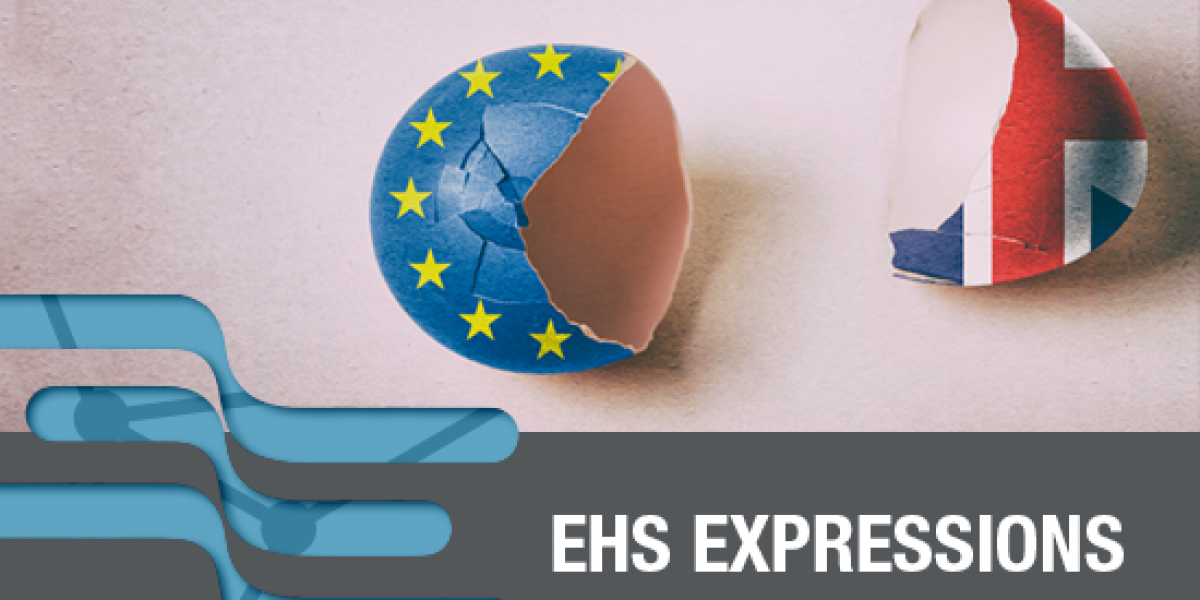You are here

On 12 July 2018, the United Kingdom (UK) issued a White Paper concerning the future relationship with the European Union (EU) after its pending withdrawal on 29 March 2019 from the EU, commonly known as “Brexit.” In the White Paper, the UK outlines plans regarding trade policy with the EU including the manufacture, import, and export of food.
Verisk 3E Review
The White Paper entitled, "The Future Relationship Between the United Kingdom and the European Union" addresses the departure of the UK from: the EU, the Single Market, the Customs Union, the Common Agricultural Policy, and the Common Fisheries Policy, which, in absence of other action, would end the free movement of trade between the EU and the UK. The paper describes the UK government's plans to forge an economic partnership with the EU and establish an independent trade policy to facilitate business with trade partners outside of the EU.
As Prime Minister Theresa May states in the introduction, the proposal "would preserve the UK’s and the EU’s frictionless access to each other’s markets for goods, protecting jobs and livelihoods on both sides, and propose new arrangements for services."
According to the White Paper, in 2017, the value of imports and exports between the UK and the EU was over £423 billion (US $555.5 billion), with the UK reporting an overall trade deficit in goods with the EU of £95 billion (US $124.5 billion). In the same year, 70% of agricultural imports (food, feed, and drink) to the UK came from the EU. The paper contains the following proposal in order to ensure the trade in goods between the UK and the EU remains frictionless at the border:
- Zero tariffs across goods (including manufactured goods, agricultural, food and fisheries products), with no quotas;
- No routine requirements for rules of origin between the UK and EU; and
- Arrangements that facilitate accumulation with current and future Free Trade Agreement (FTA) partners in order to preserve existing global supply chains.
The White Paper addresses issues concerning the food industry and provides that the UK would commit by treaty to ongoing harmonization with relevant EU rules which would be legislated by Parliament and/or local governments. In addition, the UK's proposal for an economic partnership would establish a new free trade area and maintain a common rulebook for goods including agri-food. The following three broad categories of rules would apply to agriculture, food, and fisheries products:
- Those that must be checked at the border, including relevant Sanitary and Phytosanitary (SPS) rules, which safeguard human, animal and plant health;
- Those relating to wider food policy, such as marketing rules that determine how agri-food products can be described and labeled, which do not need to be checked at the border; and
- Those relating to domestic production, such as the Common Agricultural Policy (CAP) and the Common Fisheries Policy (CFP).
The UK will be leaving the CAP and the CFP and plans on replacing the CAP, while its proposals for fisheries are contained in Chapter 3 of the White Paper. The proposal for a common rulebook would primarily involve those goods that would be checked at the border in order to meet necessary regulatory requirements for the protection of human, animal, and plant health. In addition the White Paper asserts that a common rulebook would negate the need to perform additional regulatory checks at the border and physical infrastructure at borders between Northern Ireland and Ireland. Product labeling would not be part of the common rulebook as it does not affect how food products are produced.
The White Paper also provides that the UK will be establishing its own Geographical Indications (GI) scheme which would go beyond the requirements of the “WTO Agreement on Trade-Related Aspects of Intellectual Property (TRIPS).” Among the GI-protected products from the UK are Scotch whisky, Scottish farmed salmon, and Welsh beef and lamb.
Verisk 3E Analysis
The White Paper makes it clear that the UK will no longer be subject to EU courts and although it mentions partnerships with EU agencies that provide authorizations for goods in highly regulated sectors such as the European Chemicals Agency (ECHA), it makes no mention of the European Food Safety Authority (EFSA) and its participation in or adherence to limits or standards proposed by EFSA. The proposals presented in the White Paper to promote "frictionless" access to markets will result in negotiations between the UK and EU in upcoming months. The withdrawal date for the UK (including the Channel Islands and the Isle of Man) from the EU is the end of day on 29 March 2019.

 Top
Top